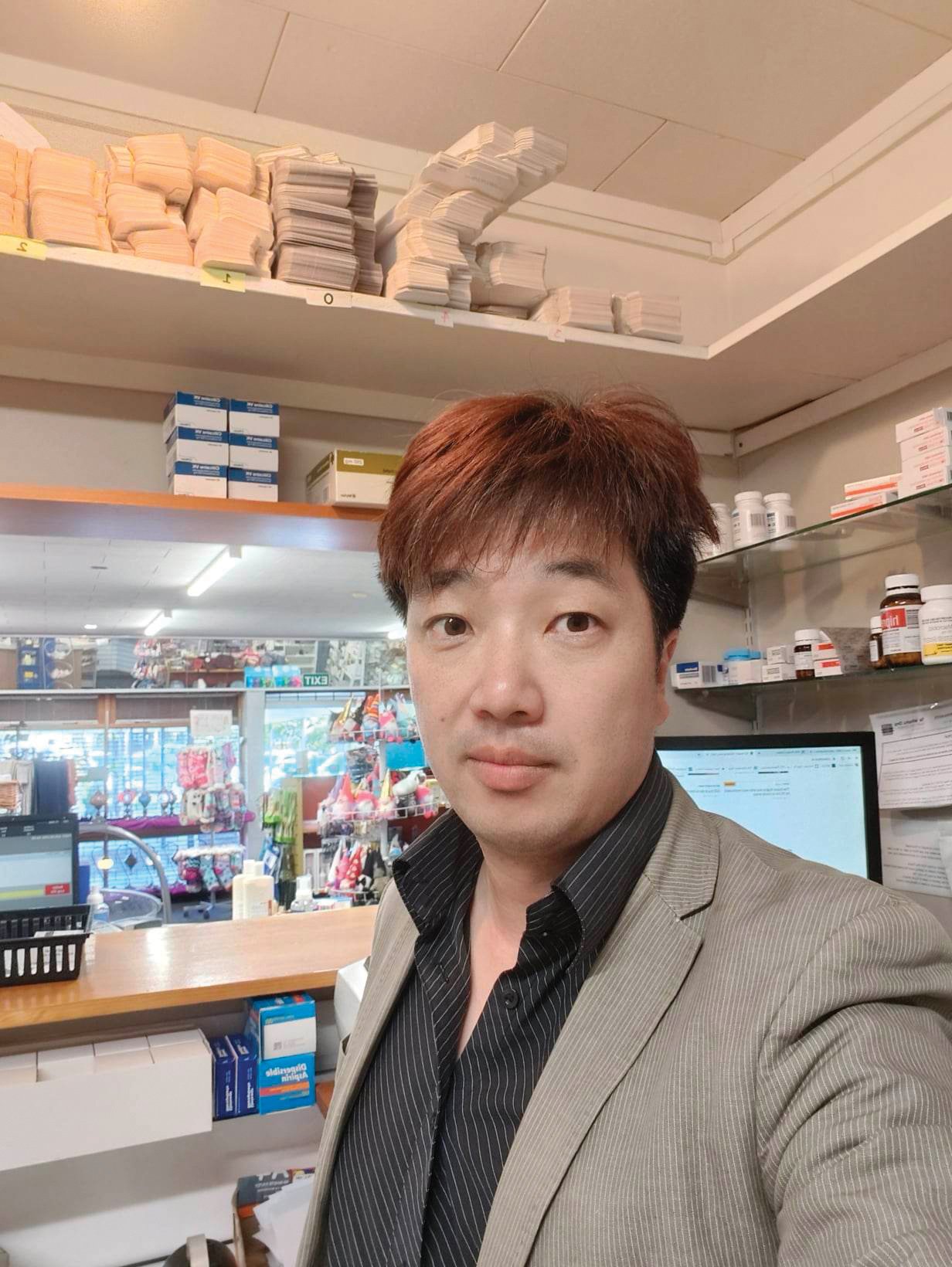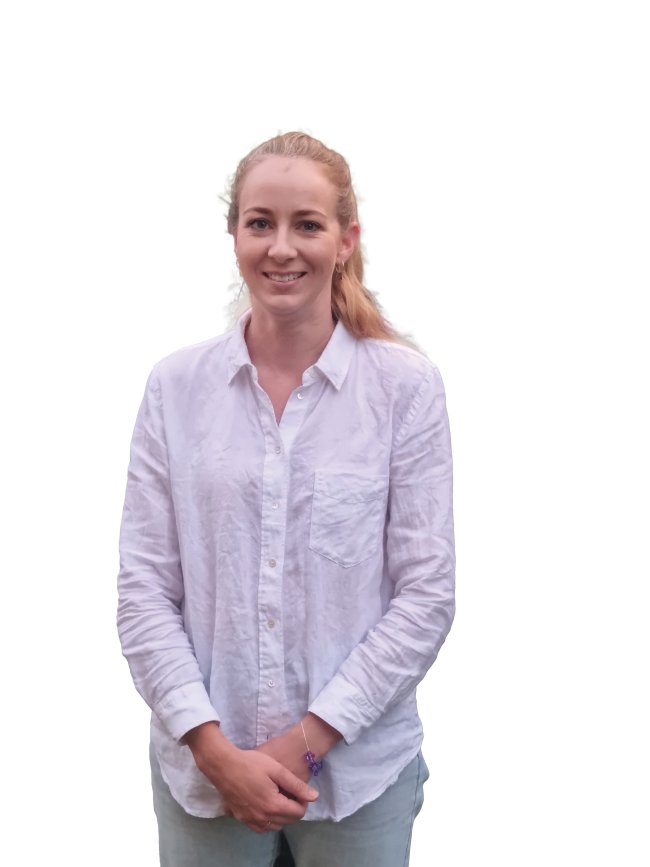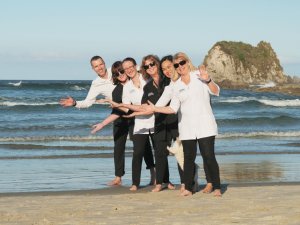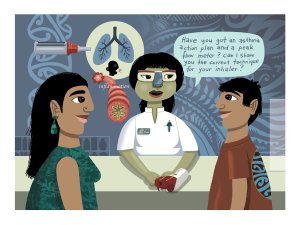Academic pharmacist Nataly Martini discusses the medical management of asthma in adults and adolescents, which has evolved to prioritise early anti-inflammatory treatment. She also explains how to improve patient outcomes by proactively identifying poor asthma control and supporting equitable access to education and treatment
Pharmacy in Australia: Is the grass really greener?
Pharmacy in Australia: Is the grass really greener?

Natasha Jojoa Burling looks at whether there are more opportunities across the Tasman
From 1 July, it will be easier for New Zealanders to get Australian citizenship. Some in the pharmacy sector are concerned the changes will lead to a brain drain, making local workforce woes worse.
However, pharmacists with experience working in Australia tell Pharmacy Today the grass is not always greener.
Rachelle Smith started working as a casual pharmacist in Cronulla, south Sydney, in February when she and her kids followed her husband, who’s an engineer.
Mrs Smith was offered A$42 to A$45 per hour ($45 to $48) for the jobs she applied for in Sydney, with no annual leave, sick pay or statutory holidays, but she’s heard it’s the going rate for someone starting in pharmacy in Australia. She was paid better at her last job managing two pharmacies in Tauranga.
Pharmacists who work late nights or weekends can get $A60 per hour ($64), and pay rates are higher in isolated places because pharmacies there are desperate for staff, she adds.
Working in Australia is less mentally stimulating. Mrs Smith says there are a lot more opportunities for clinical work in New Zealand pharmacies. In Tauranga, they did vaccinations, COVID-19 antivirals, Viagra, urinary tract infection antibiotics, oral contraceptives, emergency contraceptive pill supply, throat swabbing and clinical trials.
In Australia, the ability for pharmacists to supply medicine for UTIs and oral contraceptives is a year away, she says. Pharmacies there can do COVID-19 vaccines but are still battling for funded flu vaccines. “I feel like I have gone back in time,” says Mrs Smith. All the medicine is pre-packaged, so she’s not using her brain as much.
On the plus side, Australia has more opportunities for people to become medicines review pharmacists. The reviews are ordered by GPs, and pharmacists go into homes to do them. Also, it’s common for pharmacists to do an advanced compounding certificate.
Despite the drawbacks and not wanting New Zealand pharmacies to lose staff, she recommends young pharmacists get experience in Australia. It exposes Kiwi pharmacists to many more drugs, including advanced medicines, which she gives out “every five minutes”.
However, many Australian-based pharmacists Mrs Smith knows on Facebook are worried about their jobs because the country is changing from 30 to 60-day dispensing, which could halve pharmacies’ income.
She and her family were planning to stay three years in Australia to work out her husband’s contract. However, they’re discussing staying an extra year to get Australian citizenship. It’s an opportunity for their children to have an Australian passport so they can stay if they want to or move back as adults.
Auckland locum pharmacist Eui-Jin Kim worked in central and rural Melbourne between 2004 and 2006. Mr Kim has fond memories of his experience in Australia. “They welcomed me with open arms and valued me for what I could offer when all of the community pharmacies in New Zealand refused to take on full-time pharmacists because of the stat dispensing that disrupted the pharmacy profitability model at that time.”
New Zealand paid $27 an hour or $30 an hour for a full-time pharmacist in 2004, but Mr Kim’s pay went up to A$40 an hour as soon as he got to Australia. Experienced clinical pharmacists could earn up to A$50 or A$60 an hour.
Australia has a very generous super scheme, especially if you work in the government sector, explains Mr Kim. State employees get about 19 per cent of their pay put into a superannuation fund without having to contribute. His company paid 9 per cent of his salary into a super fund.
Original pack dispensing also meant no breaking of packs or bottles, which made the process seamless, explains Mr Kim.
After working in the UK for four years, Mr Kim returned to New Zealand because he was thinking of owning a pharmacy, which isn’t so easy in other countries.
Young pharmacists don’t have anything to lose by going to Australia, says Mr Kim. The cost of living is much lower, and it’s a new experience: “If you’re single and young, what’s stopping you?” He says pharmacists only have to spend four years in Australia to get their citizenship, and then their kids’ education and student loans will all be covered.
Those who don’t like it, can always come back. However, because of the lure of easier citizenship, “people who like what they see, once they go, they’re not going to come back”.
Pharmacy Recruit owner Amelia Gardner is afraid it will make it even harder to fill New Zealand pharmacy jobs because people will be lured across the Tasman by the higher pay rates, and those who are already there will decide to stay permanently.
“Unfortunately, the announcement has got ‘brain-drain’ written all over it, which is disastrous for us as a profession,” says Ms Gardner. She has had more enquiries from pharmacists wanting to move across “The Ditch” since the announcement was made.
She’s sceptical of the Australian Government’s motivations: “An excellent and clever way to help with their workforce issues at this time to our detriment.”
The pay was substantially better in Australia than in New Zealand when she was there between 2009 and 2019, but New Zealand rates have increased in the past three years due to supply and demand. However, she says pharmacists in this country are still paid less, $40 to $50 per hour, than their Aussie counterparts, who get A$50 to A$100 an hour, depending on location.
Ms Gardner says unless the pharmacy funding model is addressed, pay rates in New Zealand won’t rise enough, and the country will continue to have a problem. There needs to be more earning potential in a dispensary: “Every script you touch should be worth more,” she says.
Mangawhai Pharmacy owner Lanny Wong is also concerned about the easedup citizenship requirements. Ms Wong has been looking for two pharmacists for a year but would be happy with two technicians. She hasn’t found anyone through an Australian recruiter, nor via Seek, Trade Me, LinkedIn or Facebook.
“It is not looking promising now the floodgates are open to Australia,” says Ms Wong. People often return after a stint, but they may not know they’re entitled to citizenship with all the same rights as Australians, she adds.
At a recent kids’ party, all the parents could talk about was the Australian citizenship changes, says Ms Wong. It costs a lot less to survive there as a family, so even she and her husband joked about taking a sabbatical over the Tasman.
The citizenship announcement is bad news for the sector, and it’s important to talk about it, says Ms Wong. “We can’t fix it unless we know how to deal with it.”
One of Ms Wong’s pharmacists, Ben Lansdown, has ties to the area so he won’t be moving to Australia. Mr Lansdown is 23 and a recent intern graduate and says a move would be alluring for colleagues his age because they could have Australian citizenship within a few years.
He wouldn’t be surprised if some of the pharmacists he studied with were considering crossing the Tasman.
The general vibe is to “chase the money”. The lower cost of living, higher wages and better nightlife all attract young people to Australia, he says.
Some people he studied with have done their internship in Australia, and now they don’t need to go into a competitive pool to get citizenship, he says. Working in Australia used to be a temporary way to earn money, but now it’s a career option because people can look at it long term.










